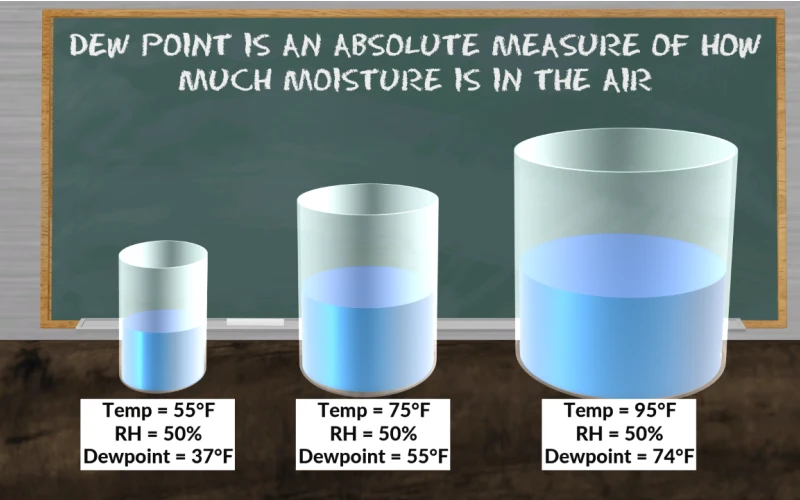High Dew Point Impact on Human Comfort and Health

# High Dew Point Impact on Human Comfort and Health
## Understanding Dew Point and Its Significance
The dew point is the temperature at which air becomes saturated with water vapor, leading to condensation. A high dew point indicates high moisture content in the air, which can significantly affect human comfort and health. When dew points rise above 65°F (18°C), most people begin to feel uncomfortable, and conditions become increasingly oppressive as the dew point climbs higher.
## How High Dew Points Affect Human Comfort
High dew points create muggy, sticky conditions that make it difficult for our bodies to cool effectively through perspiration. When the air is already saturated with moisture, sweat doesn’t evaporate as readily from our skin, impairing our natural cooling mechanism. This leads to:
– Increased perception of heat
– General discomfort during both day and night
– Difficulty sleeping in warm, humid conditions
– Reduced physical performance and endurance
## Health Risks Associated with High Dew Points
Prolonged exposure to high dew point conditions can pose several health risks:
### Heat-Related Illnesses
When our bodies can’t cool properly, we become vulnerable to:
– Heat exhaustion
– Heat cramps
– Heat stroke (a life-threatening condition)
### Respiratory Issues
High humidity can:
– Aggravate asthma symptoms
– Worsen chronic obstructive pulmonary disease (COPD)
– Increase susceptibility to respiratory infections
### Cardiovascular Strain
The combination of heat and humidity places additional stress on the cardiovascular system, which can be particularly dangerous for:
– Elderly individuals
– People with heart conditions
– Those with high blood pressure
## Vulnerable Populations
Certain groups are more susceptible to the effects of high dew points:
– Infants and young children
– Older adults
– People with chronic medical conditions
– Outdoor workers
– Athletes training in hot, humid conditions
## Mitigation Strategies
To protect yourself during periods of high dew points:
– Stay hydrated with water and electrolyte-replenishing drinks
– Wear loose, lightweight, light-colored clothing
– Limit outdoor activities during the hottest parts of the day
– Use air conditioning or fans to improve air circulation
– Take cool showers to lower body temperature
– Monitor weather forecasts and heat advisories
## Long-Term Adaptation
For those living in consistently humid climates:
– Consider installing dehumidifiers in your home
– Choose breathable building materials
– Incorporate shade structures in outdoor spaces
– Develop heat action plans for vulnerable community members
Understanding the impact of high dew points can help individuals make informed decisions about their activities and take appropriate precautions to maintain comfort and health during humid conditions.
Keyword: high dew point